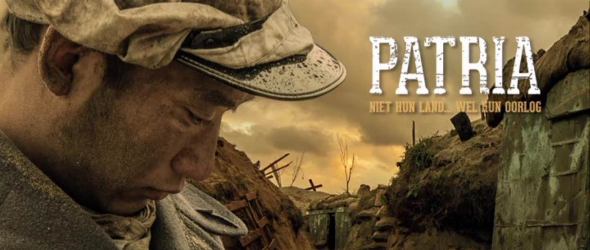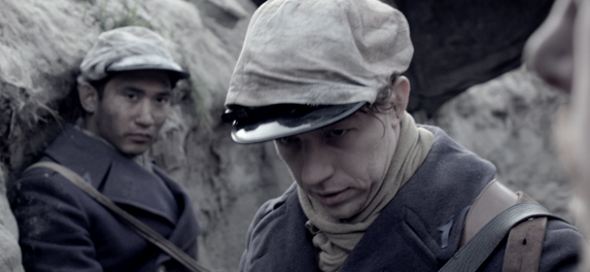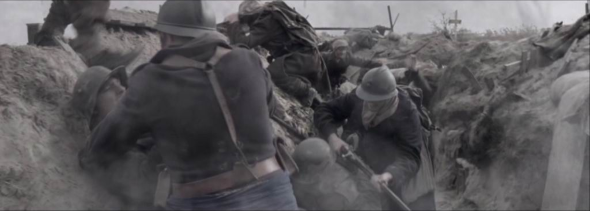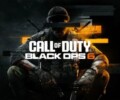
Patria (DVD) – Movie Review
It has taken over 60 years for the Dutch movie industry to create a movie about the Great War – World War I. What better time then, as the reminisce of the start of the war, exactly 100 years ago? We know that the movie wasn’t made with the largest budget (sources say it only costed around 20.000 Euro) and this is something we’ll keep in mind during this review.
 The movie follows the life of Arthur Knaap (Timothy Flohr) and it’s based on the writings that Knaap left behind, so everything that happens in the film happened for real. Patria starts in 1914, in Paris. When the war breaks out, the family Knaap, under guidance of pater familias Otto Knaap, moves back to the neutral Netherlands. Arthur however doesn’t approve of this, in his eyes it feels like cowardly running and instead he wishes to aid the Allied forces against the invading Germans.
The movie follows the life of Arthur Knaap (Timothy Flohr) and it’s based on the writings that Knaap left behind, so everything that happens in the film happened for real. Patria starts in 1914, in Paris. When the war breaks out, the family Knaap, under guidance of pater familias Otto Knaap, moves back to the neutral Netherlands. Arthur however doesn’t approve of this, in his eyes it feels like cowardly running and instead he wishes to aid the Allied forces against the invading Germans.
In the documentary that was reviewed a couple of weeks ago (14 – Diaries of the Great War) we found out that this was pretty much the standard behavior of kids during that period. They imagined that the war was some kind of event where one would gain honor and become a mature and responsible man. The reality however, turned out to be different. Knaap gets accepted in the army and joins De Rooy (Pascal Vugts), Tinus (Gabriel van Eekelen), Jules (Tijs Huys) and Sjarrel (Ricardo Esser). Together they will face the hardships of war: fear, hunger, the loss of comrades and the toxic gas that the Germans use.
Knaap kept in touch with his family through letters. The events in Patria are taken from said letters and are re-enacted. By doing so, the movie becomes the story of one man in a worldwide conflict.
 Patria is a very ambitious movie. Taking on any war as a subject for your movie is a challenge, since it must combine elements of facts, but show it in an engaging and captivating way. While the uniforms and trenches seem very lifelike, director Klaas van Eijkeren forgets to humanize the characters. The acting is quite ‘wooden’, so it’s very difficult to feel for Knaap during his though times. It’s a shame really, because it seems like there is an interesting story buried under the boredom.
Patria is a very ambitious movie. Taking on any war as a subject for your movie is a challenge, since it must combine elements of facts, but show it in an engaging and captivating way. While the uniforms and trenches seem very lifelike, director Klaas van Eijkeren forgets to humanize the characters. The acting is quite ‘wooden’, so it’s very difficult to feel for Knaap during his though times. It’s a shame really, because it seems like there is an interesting story buried under the boredom.
The performance of Huys (who is playing the traumatized Jules) gives the best moments in the movie. His thousand-yard stare is impressive and you can see his disillusion in the war and in his fellow man. Flohr, who is given the role of Knaap, doesn’t succeed in giving this much emotion. He is very superficial in his portrayal of the lead role and this creates a distance between the viewer and the character of Knaap, a distance that shouldn’t be there if you are watching the events of World War I through the eyes of one man.
While the actors weren’t that impressive, a lot of blame probably falls on the screenplay. Instead of attempting to create a full-fledged story out of the diary entries, van Eijkeren decided to film the movie as close to a diary as possible. Patria is very fragmented and lacks a story arch. The entire movie feels like random moments that are pasted together as a sort of “best of” of Arthur Knaap’s diary. Instead of a tribute, it feels like a mocking of the man’s life, which is really disappointing. There’s certainly pride in sticking to the truth as closely as you can, but a lot is done by how you shoot it. If van Eijkeren wanted to show us that the war was monotone and bland, he has certainly succeeded in passing that message. A concrete example: every scene (which last around 5 minutes) ends with a fade to black. In a movie that last 77 minutes, you get almost the same time devoted to a black screen as to the story itself.
 It’s probably unfair to compare Patria to the aforementioned documentary, since the budgets were likely vastly different, but still. They both have the same approach to the continental conflict, basing their stories on diaries detailing the time period. Still, the finished products are at different spectrums. While the documentary easily fills eight episodes of an hour, this movie has trouble providing content for an hour and a half. To end on a high note: the movie looks pretty. The lighting is excellent and there are at least two shots in the movie that can live up to any Hollywood movie.
It’s probably unfair to compare Patria to the aforementioned documentary, since the budgets were likely vastly different, but still. They both have the same approach to the continental conflict, basing their stories on diaries detailing the time period. Still, the finished products are at different spectrums. While the documentary easily fills eight episodes of an hour, this movie has trouble providing content for an hour and a half. To end on a high note: the movie looks pretty. The lighting is excellent and there are at least two shots in the movie that can live up to any Hollywood movie.
Conclusion
The basis for Patria is no doubt an interesting one. A young man gets disillusioned by the hardness of war. It fails to deliver on this excellent premise, by having a weak direction and equally poor acting. It isn’t a very long flick, but even then it seems to last for ages. The only thing that Patria succeeds in is having a decent portrayal of the uniforms and general living conditions of 1914, everything else needs work.





No Comments